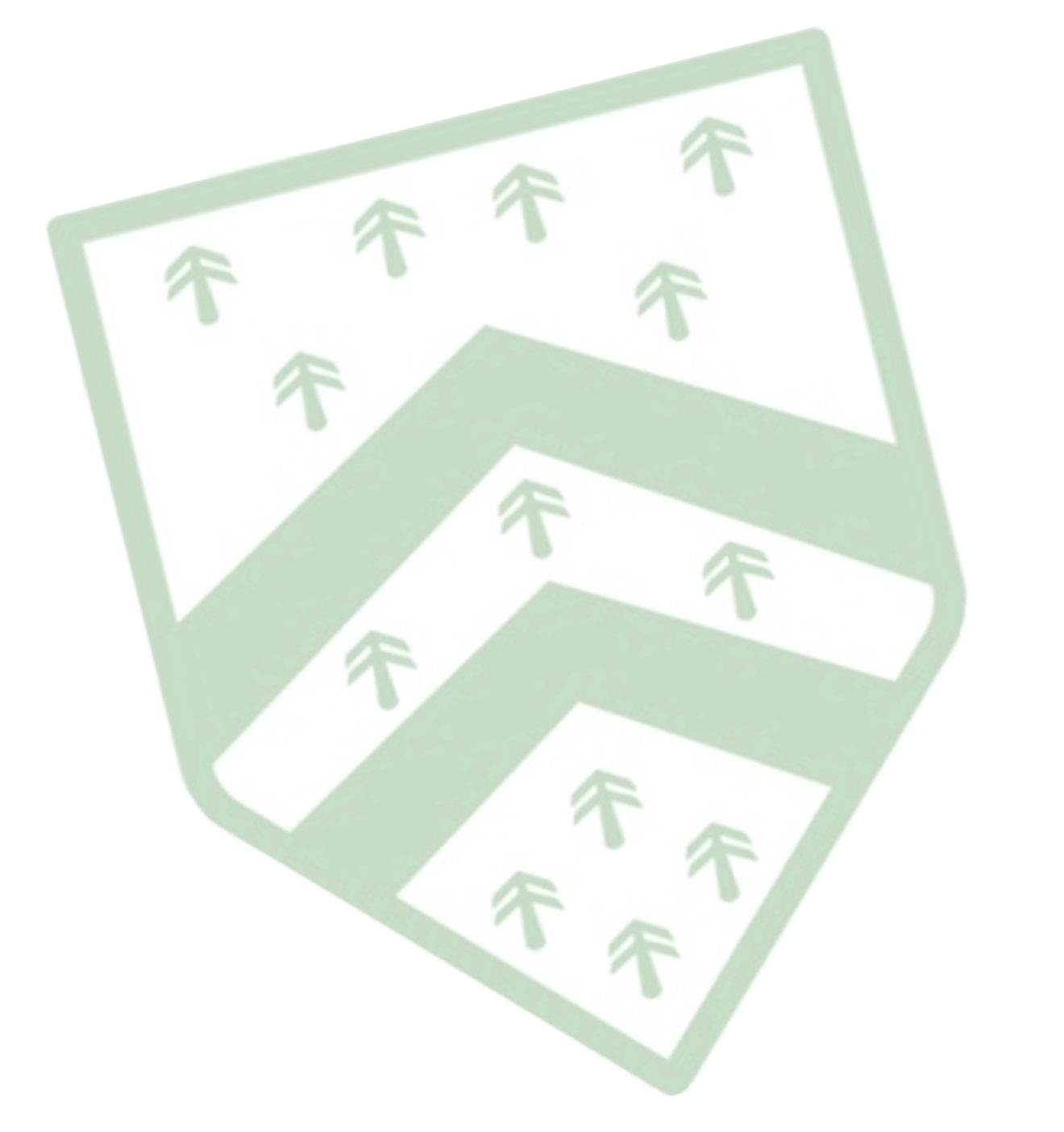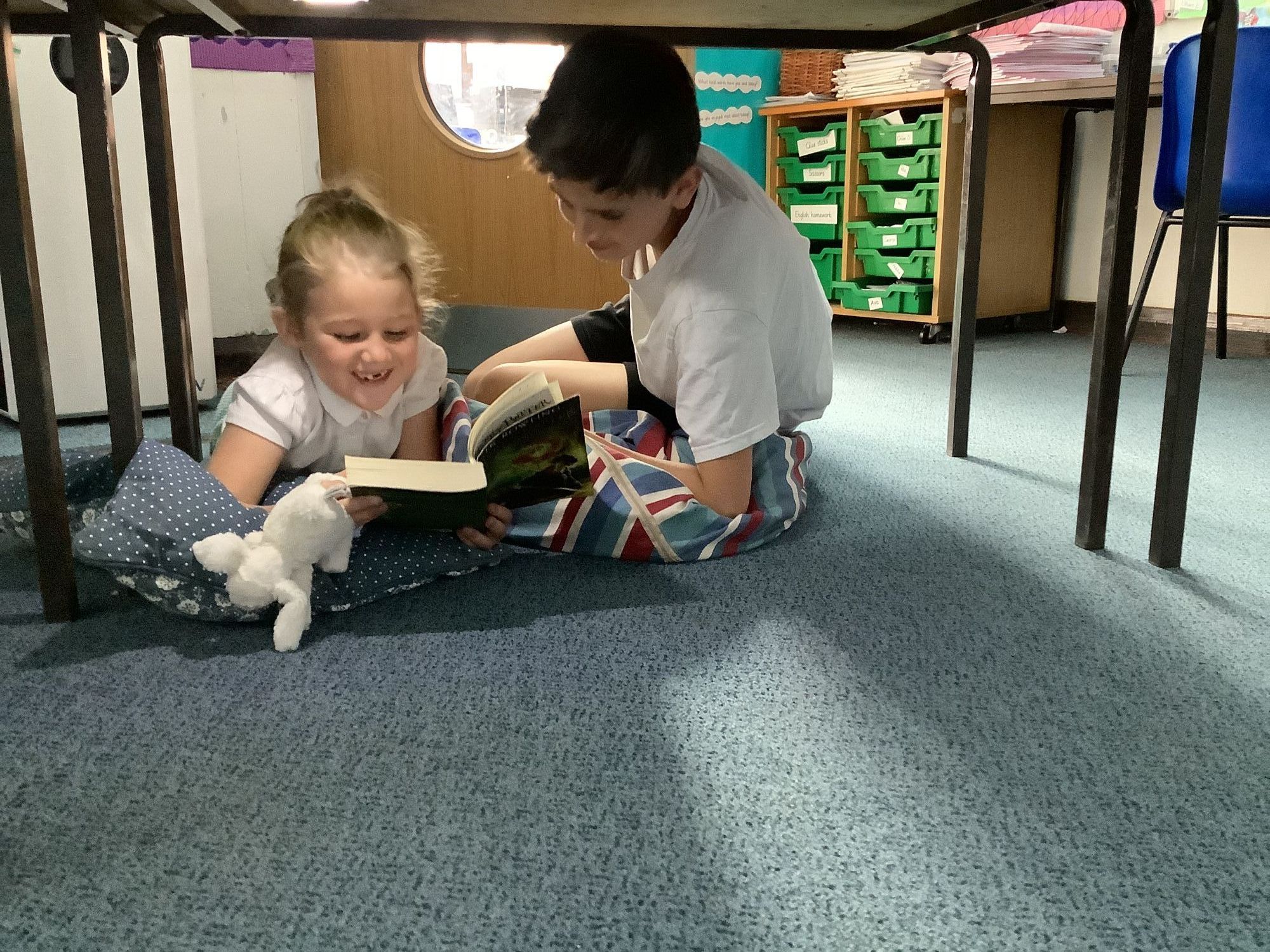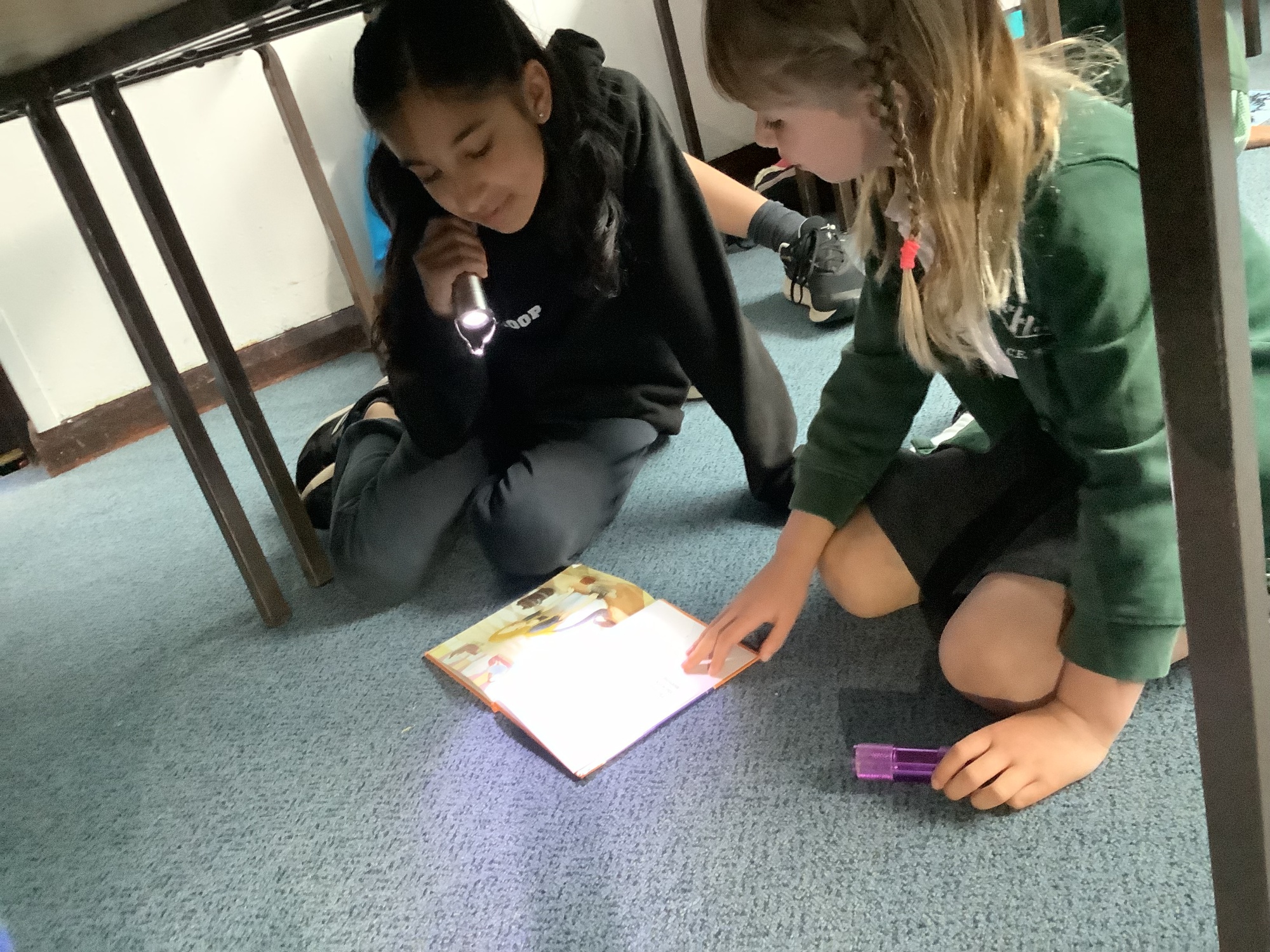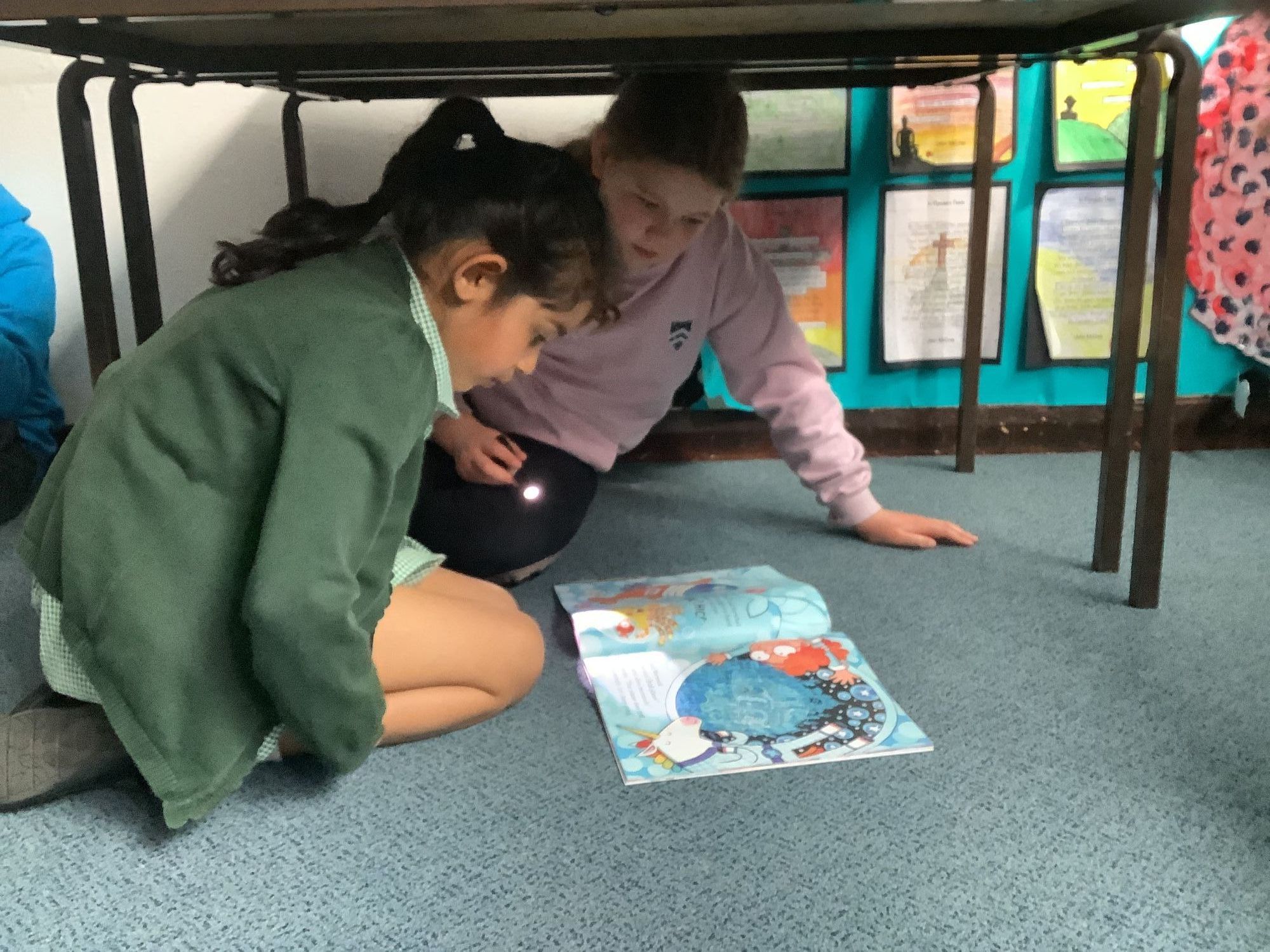
Homework
The most important thing that parents can help their child with at home is to foster a love of reading. This can be through sharing stories together at bedtimes, talking about the stories that you read as well as supporting your child to read independently. Setting aside time to read each day in Reception creates a great habit that can be continued throughout their time at primary school. Finding authors and genres that your child enjoys reading is critical as they become fluent readers - visiting local libraries (as well as the children accessing the class and school library) gives them a chance to discover a huge range of different authors which will help them to find a writing style they enjoy. They can then share the books they love in our 'Torchlight Tuesday' sessions.



One thing that secondary schools talk to us about more than anything else is ensuring that the children finish primary school as fluent readers so that they are ready to access the curriculum in Key Stage 3.
See below for our expectations regarding homework. If you have any questions or concerns, please address these to your class teacher.
On rare occasions, when essential homework has not been completed, the class teacher may arrange for pupils to complete this in their own time by taking their homework task to the allocated NEW-room (Not Enough Work classroom). We use a NEW-room system where one teacher each lunchtime provides a space for 15 minutes for any children to complete learning that they were not able to complete in class time (or for homework) due to a lack of effort. No child is asked to complete learning that they are struggling with in the NEW-room.
Children in Year 5 or Year 6 who are not completing their reading at home will be asked to use a breaktime to read, and will be supported by staff to choose a book that they will enjoy.
Reception:
- Read at least 4 times a week, writing in the reading diary each time.
Reading books are changed on Mondays each week.
Year 1:
Every week:
- Read at least four times to an adult at home. Ask them to record in your reading diary.
- Practise your spellings.
Reading diaries will be checked, books will be changed and new spellings given out on Thursdays.
Year 2:
Every week:
- Read at least four times to an adult at home. Ask them to record in your reading diary. Reading books are changed on a Monday, while home reading diaries are checked most days.
- Practise your spellings on the 'Look, Say, Cover, Write, Check' chart. Spellings are given out on a Monday, ready for a test or task the following Monday.
Alternate weeks:
- Complete an English task.
- Complete a Maths task.
- (Occasionally one of these tasks may be replaced with a topic-related activity.)
These tasks will be set on a Friday and due in the following Friday each week.
Year 3:
Every week:
- Read at least four times and record in your reading diary, which should be signed by an adult.
- Practise your spellings. New spellings are given out on a Monday, ready for a test or task on the following Monday.
- Practise your times tables (including on TTRockStars).
Alternate weeks:
- Complete an English task
- Complete a Maths task
- (Occasionally one of these tasks may be replaced with a topic-related activity.)
These tasks will be set on a Friday and due in the following Wednesday each week.
Year 4:
Every week:
- Read at least four times and record in your reading diary, which should be signed by an adult.
- Practise your times tables (including on TTRockStars).
- Practise your spellings. New spellings are given out on a Monday, ready for a test or task on the following Monday.
Alternate weeks:
- Complete an English task.
- Complete a Maths task.
- (Occasionally one of these tasks may be replaced with a topic-related activity.)
These tasks are set on a Friday and due in the following Wednesday each week.
Year 5:
Every week:
- Read at least four times and record in your reading diary.
- Times tables practice through TTRS and multiplication and division sheets.
- Practise your spellings and put them into sentences.
- Complete a Maths or English task.
Homework tasks are set on a Friday and due in the following Thursday each week.
Year 6:
Every week:
- Read at least four times and record in your reading diary, which should be signed by an adult. Reading diaries are checked on Mondays.
- Practise your times tables on TTRS.
- Complete grammar, punctuation and/or spellings task.
- Complete a Maths task.
Maths and English tasks are given out on a Thursday and due in the following Thursday each week.
During the summer term:
- Complete a topic homework activity. This will usually be a longer piece of work spread over several weeks.


